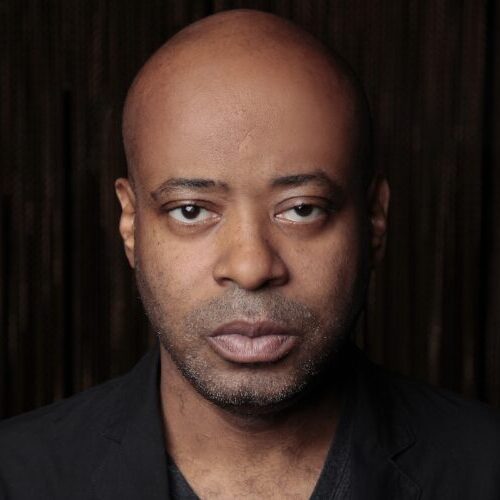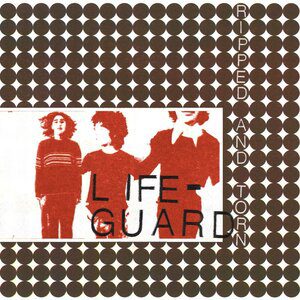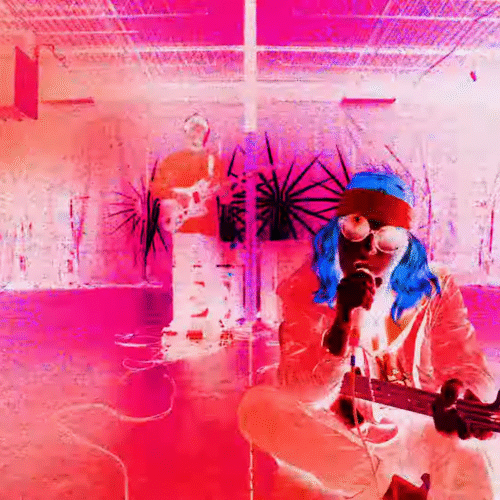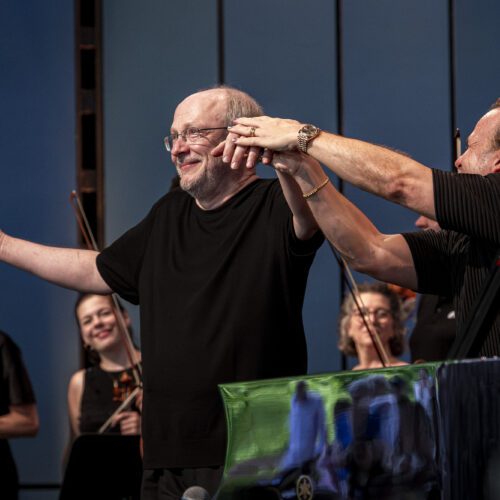There’s a moment near the midpoint of Michael Mann’s film masterpiece Heat (1995) when Robert DeNiro’s character is alone in his stunning penthouse apartment. He’s dressed in a black suit, having a stiff drink, surrounded by opulence and wealth on a dark summer night. Marbled glass and floor-to-ceiling windows carry stunning blue light into the space. It’s beautiful, serene, and yet so clear that the character could not be further from anything resembling happiness.
This very specific mood is the best way I can describe the atmosphere of Molchat Doma’s performance on April 2nd at MTELUS. Beauty, serenity, sadness. Wrapped together, interwoven, creating something as imperfect as it is imperative.
The night began with a solid set from opening act Nuovo Testamento, a synthy, ‘80s-pop-inspired duo that evoked Italian ice on the pier as the sun dips below the horizon. With tight, booming percussion courtesy of Giacamo Zatti and powerful, anthem-worthy vocals from Chelsey Crowley, the tone was set.
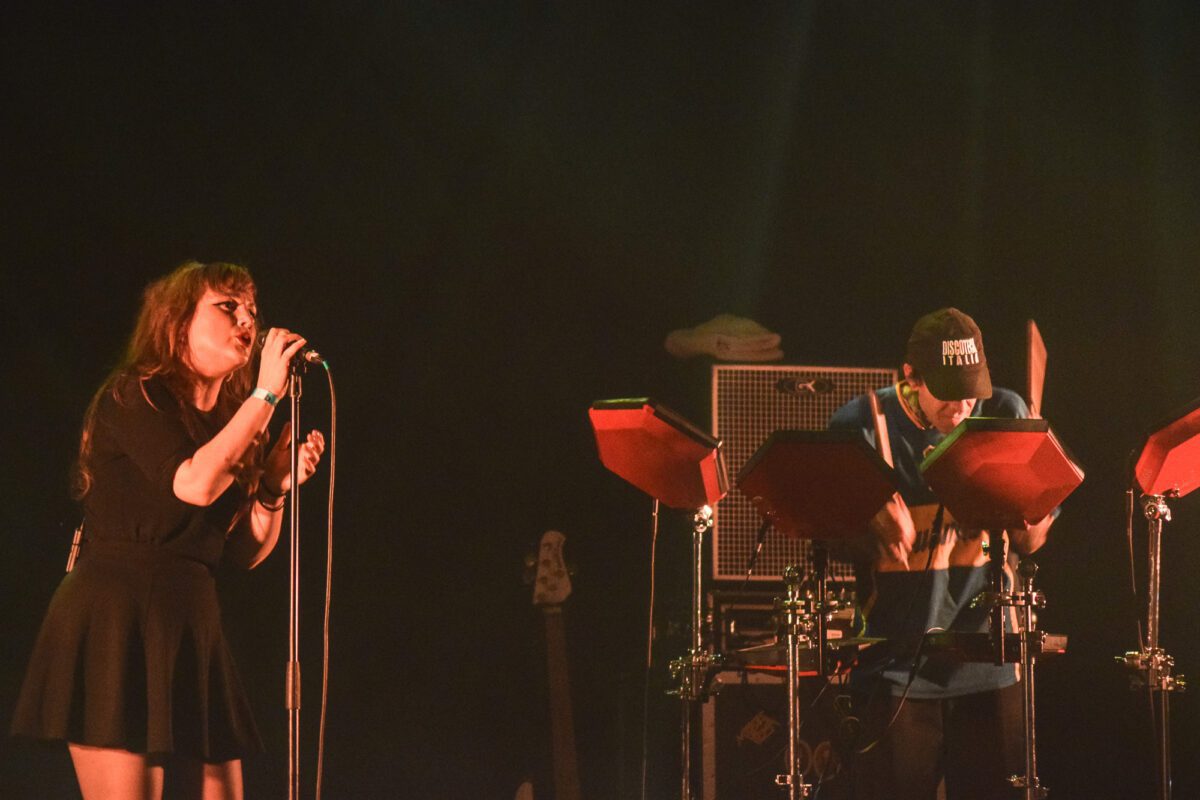
Molchat Doma’s three members showed up on stage dressed for a semi-formal heist, which is appropriate, because they stole the show. There’s something very special about seeing more than 2,000 young people desperately screaming out for a man like lead vocalist Egor Shkutko, dressed like an enforcer for the Belarusian mob.
To call Molchat Doma’s work ‘moody’ would be an understatement. Retro synths, emo-derivative guitar riffs, and signature coldwave basslines all came together into melancholic tracks that simultaneously drone and inspire. And despite Egor’s low-register vocals, dramatic intonations, and the fact that he sings solely in Russian, there’s something in these songs that has the uncanny ability to reach out and touch us.

I, like many, discovered Molchat Doma during the early days of the pandemic with their biggest hit, “Судно.” Fun, yet serious, energetic, but morose, this track, has always filled me with a unique sense of nihilistic urgency—it would be my first choice if I got hold of the aux in the getaway vehicle. And since I don’t speak Russian, I’ve always called this one “The Crime-Doing Song.” That felt like a good descriptor until I looked up a translation of the lyrics. Here’s an excerpt from the chorus, which has graced countless TikToks and cooler-than-average house parties over the past two years:
Enameled bedpan
Window, bedside table and the bed —
Not cozy at all — hard to live
But it’s cozy to die
And the drops fall from the tap quietly
And life is just a fucking mess
It’s (life) getting outside like from the fog
And sees it — bedside table and the bed
Does this sound like music to rage to? You might not think so, but the 2,300 youths going completely buck wild on Sunday’s show would have to disagree.
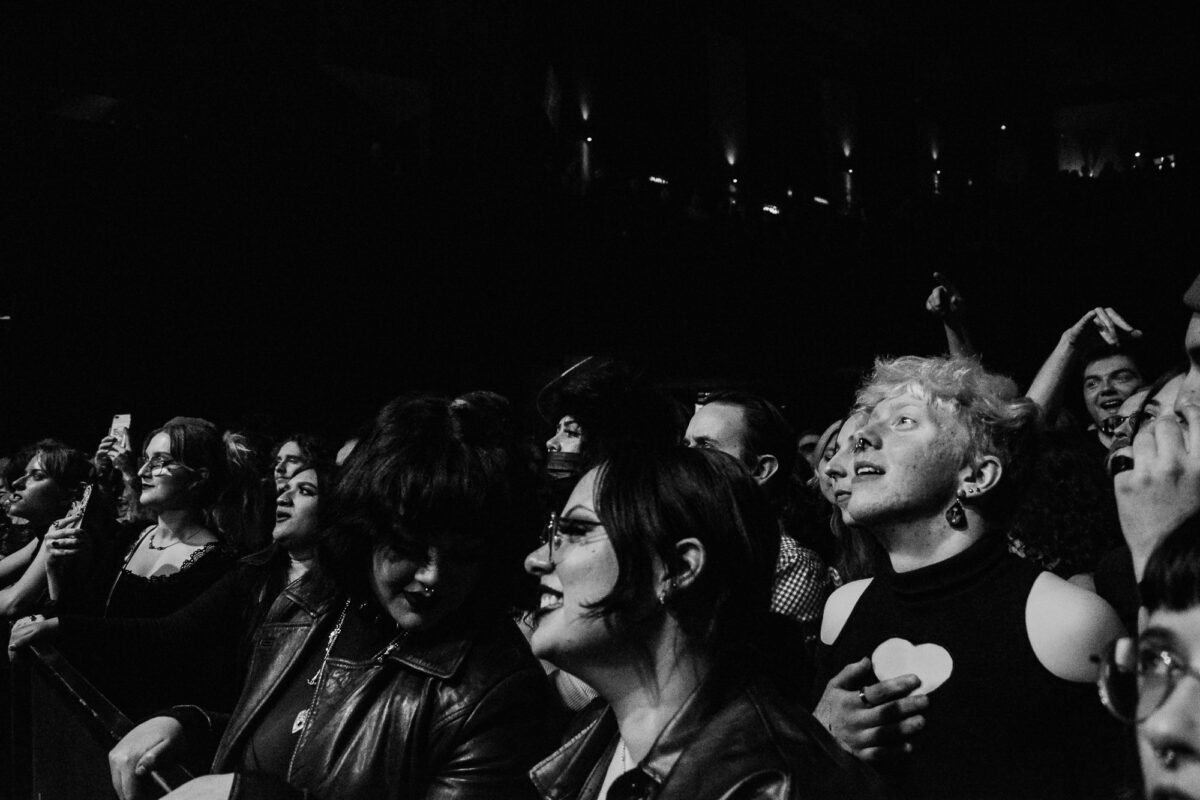
The energy in the room that night was palpable—as if each and every person in there was letting something raw and primal loose from its cage within them—whether they were opening the pit during one of Molchat Doma’s signature breakdowns or contributing to a cascading domino effect of teenage crowd surfers. In one particularly incredible moment, a young girl managed to hit the splits atop the throng of concertgoers beneath her, showing just what this music can do for those who need it.
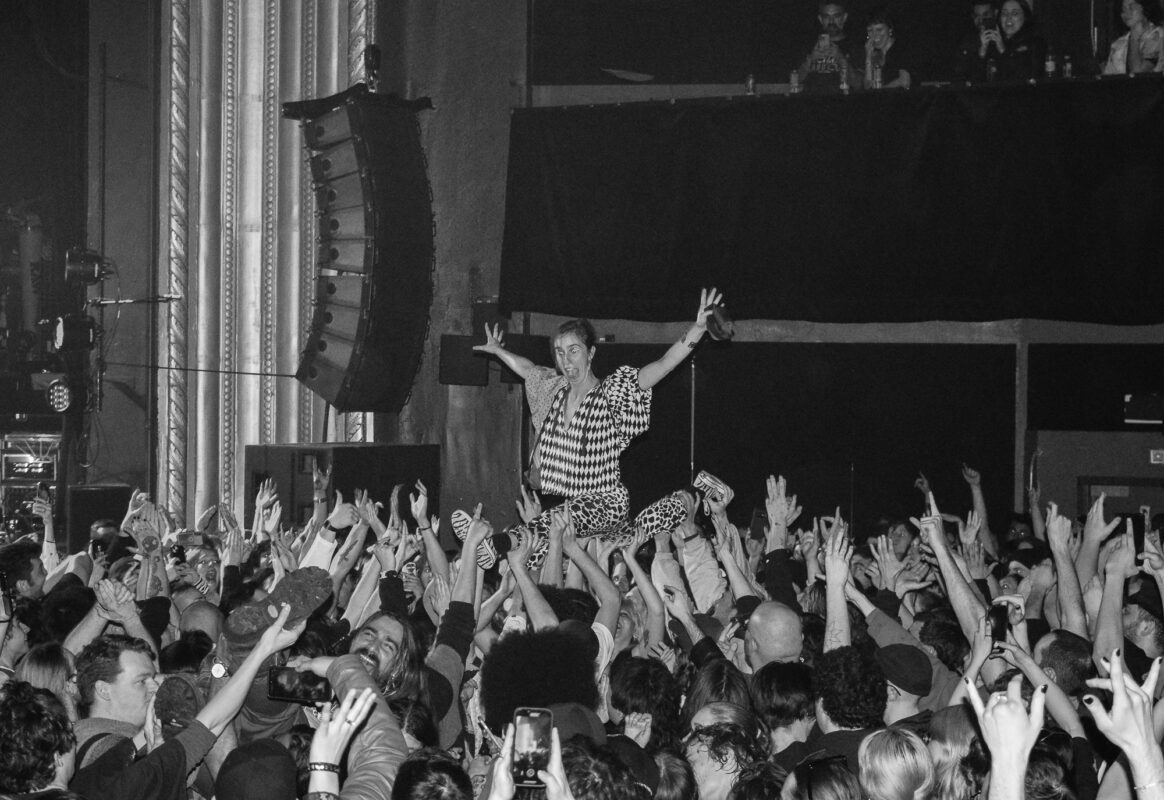
Throughout the evening, I couldn’t get the thought of Heat out of my head. The thought of sadness and guilt polished to a mirror sheen in a stunning apartment parallels Molchat Doma’s glamorous production and nostalgic arrangements, all crafted to carry central messages of despair, longing, and regret. And much like Robert DeNiro’s character in Heat, there’s a quiet intensity to Molchat Doma that feels like it could snap from sadness to rage at any moment.
Molchat Doma is music for those going through tough times. But unlike the sad track you put on after a breakup, this is sad music with energy and urgency. And there’s no better way to understand the vitality of this specific breed of Eastern European coldwave post-punk. The music of Molchat Doma pushes us. It sees us. It recognizes a part of us that feels desperate for sudden, radical, violent change in our lives and the world at large.
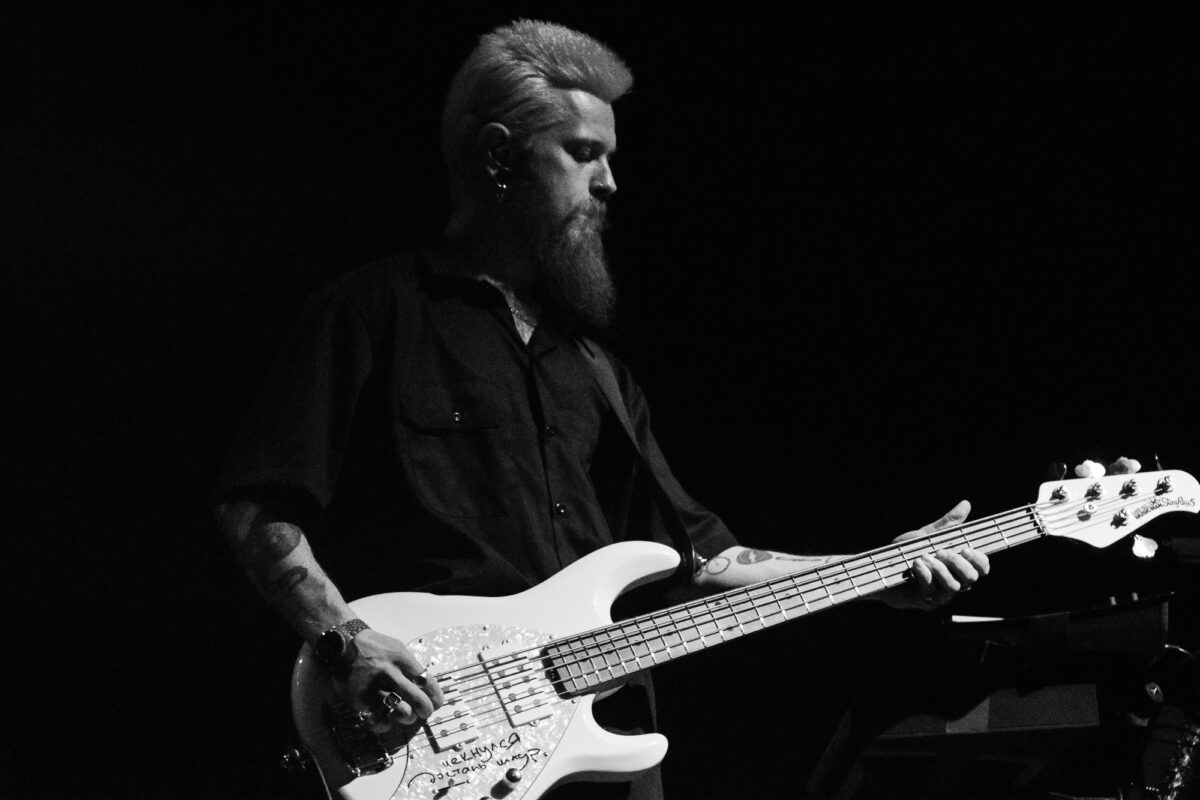
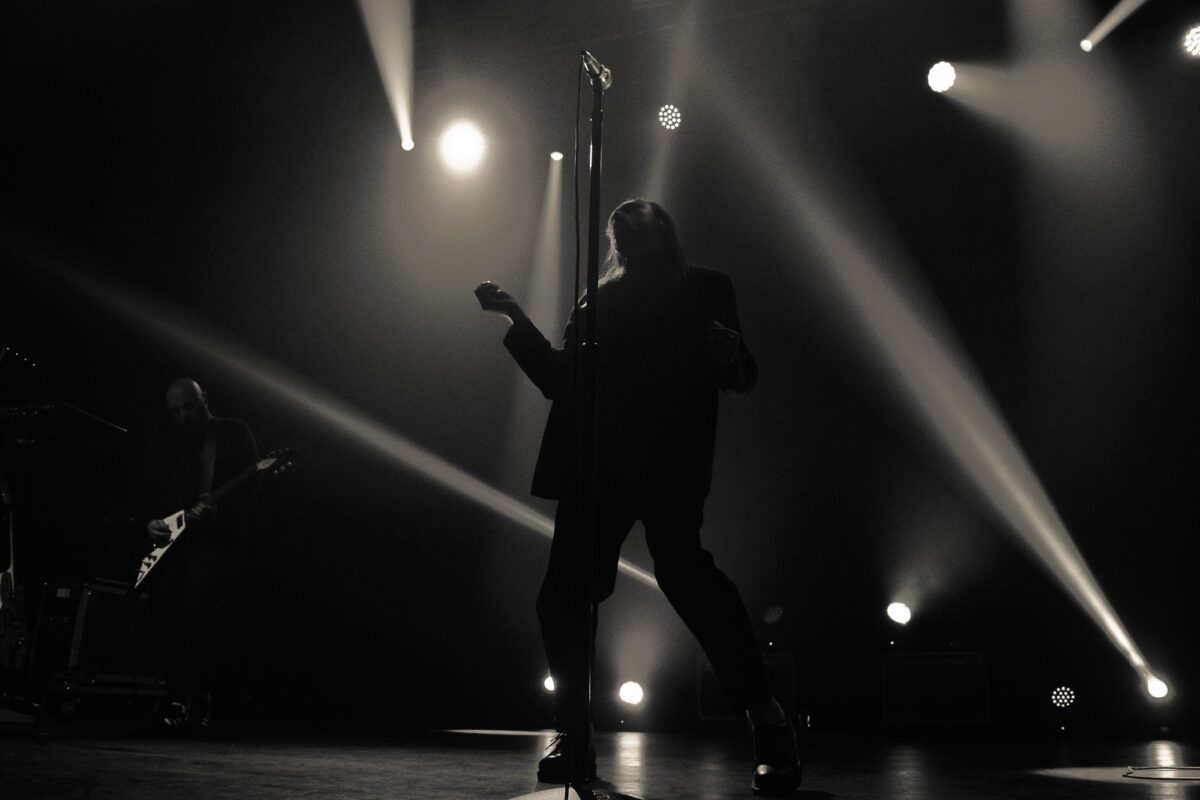

Words: Lyle Hendriks
Photos: Stephan Boissonneault


